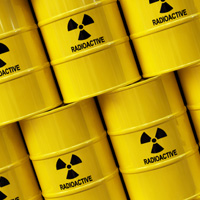In this time of increasing challenges to the nuclear regime—such as North Korea and U.S.-Russia tensions and the corresponding risks to arms control agreements—the U.S. Congress has an important leadership role to play. Members can use their platform to reduce risks posed by nuclear weapons, which present an existential threat to us all.
With a few crucial exceptions, interest in and knowledge about nuclear issues in Congress has waned significantly over the last few decades. This is understandable given the noteworthy progress achieved in reducing nuclear stockpiles, alongside a shared sense that great power rivalry had abated as the Cold War receded further in the rearview mirror.
But just as many came to see nuclear weapons as relics of a bygone era, they are rearing their head again—and this time with new complexities that are intensifying the dangers. Nine countries now possess nuclear weapons. Many more are promised nuclear protection in a complex and potentially destabilizing web of alliances. New technologies threaten to alter strategic calculations and upset the status quo, which could make use of nuclear weapons more likely. Cyber-attacks, terrorism, accident, or miscalculation—the list of nuclear nightmares seems to grow longer by the day.
Meanwhile, the already strained U.S.-Russia relationship risks further deterioration as Russian meddling in the 2016 U.S. election, outstanding questions about the Trump campaign’s contacts with Moscow, and corresponding investigations and lawsuits continue to dominate the nightly news. Poor relations between Washington and Moscow can increase nuclear risks because together these two nations possess and control the large majority of nuclear weapons and materials in existence. Diplomatic progress to alleviate this tension is sorely needed.
To make matters worse, constructive policy debates in Washington that are required to effectively navigate these complex nuclear dangers seem like a thing of the past. As with many other issues, nuclear policy suffers from the partisanship that grips Washington. But this has not always been the case.
During the Cold War, some policymakers rightly viewed nuclear risk reduction measures as far too important to allow progress to succumb to political partisanship. Bipartisan cooperation such as the Nunn-Lugar Cooperative Threat Reduction programs, which locked down vulnerable nuclear material in the former Soviet Union, remain shining examples of how to ensure that nuclear risk reduction transcends partisanship and that nuclear politics can stop at the water’s edge.
The U.S. Congress would do well to take heed of this example and work to reestablish its spirit of bipartisanship. Fortunately, there are some indications that this process is underway, and, in a glimmer of hope, nuclear champions are emerging on Capitol Hill. Congressman Jeff Fortenberry (R-NE) and Congressman Peter Visclosky (D-IN) co-chair the Congressional Nuclear Security Working Group. As a bipartisan cohort dedicated to increasing awareness of the dangers posed by nuclear proliferation and terrorism, the caucus works to bolster the nuclear expertise of lawmakers and their staff and increase engagement to implement sound policies. In just a few years, the caucus has grown into an important forum that is focused on developing and implementing sound policy solutions.
The success of the caucus contributes to a key goal of MacArthur’s Nuclear Challenges work: to strengthen capacity in Congress so that Members understand the dangers and liabilities of nuclear weapons and materials and are primed to lead. Our funding is helping to rebuild a bipartisan community of experienced professionals who work across party lines and have learned how to translate complex (often considered arcane) nuclear issues in an accessible way to ever broader audiences.
With our support, George Washington University is working to place up to eight nuclear-expert fellows in the offices of Republicans and Democrats in both chambers of Congress. Now in its second year, the fellowship program has contributed to reinvigorating the nuclear caucus in the House. It has also supported the development of a small and informal cadre of fellows and aides in the Senate. The fellows have become trusted and integral members of their respective offices, briefing Members on a variety of nuclear issues, piquing interest, and increasing expertise among lawmakers.
The Center for Arms Control and Non-Proliferation is working to broaden the skills, leadership, and influence of Members on issues that are critical to protecting and strengthening the nuclear regime. Long Island University is training new Members to explore diplomatic resolutions to foreign policy challenges with a nuclear dimension, while ensuring that they have the practical tools they will need to take action.
The 116th Congress could present new opportunities to build on this agenda as more scientists, military veterans, and new voices come to Washington eager to craft an affirmative policy agenda. In the years ahead, our grantees will continue to expose Members to the urgency of nuclear risks, while conveying the essential role of U.S. leadership in mitigating them. In doing so, they will continue to work toward sparking the bipartisan leadership on Capitol Hill that nuclear issues demand.
Nuclear Challenges grantmaking ›
Nuclear Challenges strategy ›
Other Directors' Reflections ›



